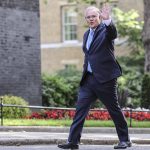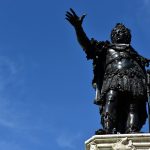What kind of voice to Parliament?

As Professor Marcia Langton says, most Australians have little understanding of the constitution or how government works.
The Prime Minister’s proposed referendum question is: “A Proposed Law: to alter the Constitution to recognise the First Peoples of Australia by establishing an Aboriginal and Torres Strait Islander Voice. Do you approve this proposed alteration?”
That seems reasonable and it recognises the existence of our indigenous people. That’s a good start, but it’s like asking if forced child migrants from Britain or the descendants of convicts should get a fair go. Of course, they should, but the answer is not so straightforward as the question. A weakness in the argument for reconciling past injustice is that any of us could be descendants of both the oppressors and the oppressed.
Dedicated people, indigenous and others, on both sides of politics have worked for many decades trying to overcome Indigenous disadvantage. The proponents of the ‘yes’ referendum case for “The Voice” argue, paradoxically, that the intended beneficiaries of bureaucratic good intentions in the past are no better off.
Most would agree that formal recognition of indigenous people is long overdue, but why create yet another expensive bureaucracy, this time enshrining it in the constitution. The potential for endless litigation rendering ‘The Voice’ ineffective, should also cause the government to reconsider.
There is no role for government in deciding the criteria by which individuals identify their ethnicity, but this is likely to come into question, and it raises some very difficult ethical issues. For instance, the obscene prospect of NAZI-style eugenics, posing euphemistically as DNA profiling, or any other form of socio-political engineering, must be specifically excluded.
Census data for 2011, 2016 and 2021 show that the number of people who identify as Aboriginal and Torres Strait Islanders is growing at a rate that will double that population in about 12 years, should the trend continue. The number of Indigenous electors exceeds the vote margin held by incumbents in a number of electoral divisions. The ratio of electoral margin to eligible Indigenous voters suggests that a “Voice to Parliament” could become a significant political force, especially in crucial marginal electorates.
It would be naive and dangerous to think that extremists and potential infiltrators of various kinds will not want to seize an opportunity to advance their causes. In this case, potentially, through a well-meaning “voice to parliament” enshrined in the constitution.
The Uluru Statement does not prescribe what form the “Voice” should take but there appears to be support for a separate body alongside Parliament that would advise on matters affecting indigenous people.
An alternative to “The Voice” could be the creation of indigenous electorates spanning the nation to guarantee representation such as in New Zealand. However, it would be virtually impossible to do this in a way that would be consistent with the arrangements set out in the Australian constitution.
However, The High Court of Australia has already decided that Aboriginal and Torres Strait Islander peoples had rights to the land before the British arrived.
The Hon Linda Burney MP is the Minister for Indigenous Australians. The National Indigenous Australians Agency (NIAA) website states: “We work directly to and support the Minister for Indigenous Australians. We work to influence policy across the entire Australian Government. We also liaise closely with State and Territory governments to ensure that Indigenous programs and services are delivering for Aboriginal and Torres Strait Islander peoples as intended.”
The Minister should explain how a separate ‘Voice to Parliament” would interact with the NIAA and what could “The Voice” achieve that cannot be done through the existing agency?
The federal government should at least separate the question of formally recognizing indigenous people in the constitution from the vexed question of “The Voice”.
In any case, we should insist on knowing what it is we are being asked to decide. Otherwise, this long overdue attempt at reform will probably fail.

Max Thomas, Dip. Agric. (retired) worked in the public sector and in private consulting on a range of land, water and waste management projects. He prepared guidelines for irrigation with recycled water for EPA Victoria and developed a number of Environmental Management Systems in the water industry.














